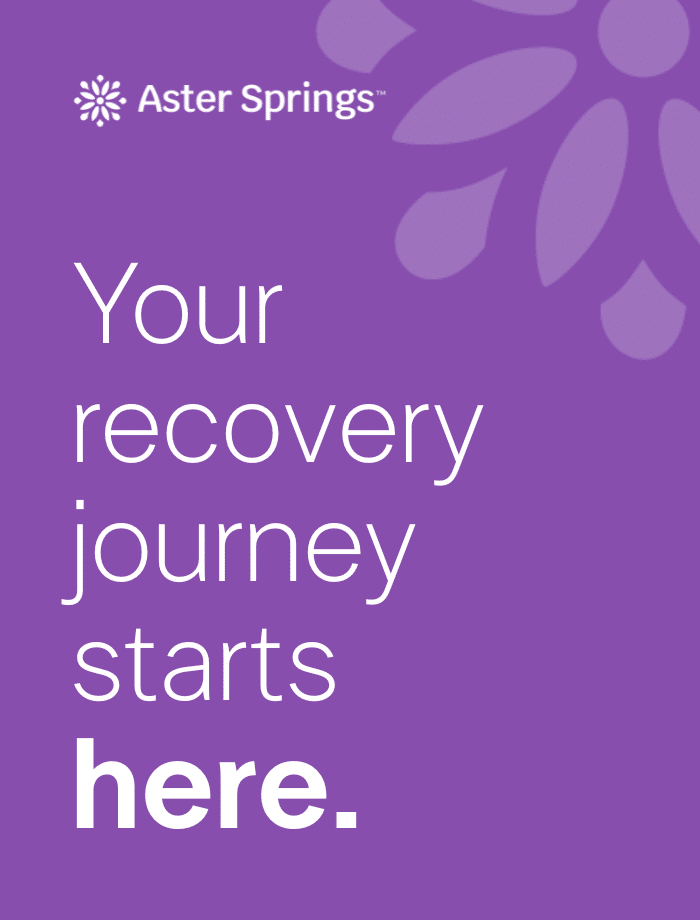Most of us want to present our best selves when we venture into the world, whether that means dressing a certain way or choosing a particular hairstyle; the mirror allows us to have some level of control over how the world sees us, and that can be an empowering, even comforting feeling. But there is a point when concern over what we look like becomes detrimental. When we’re obsessive and ritualistic about assessing our bodies, it’s known as body checking—and it can contribute to the development and relapse of eating disorders.
What Is Body Checking?
Body checking is the compulsive need to evaluate your body to gather information on your weight, size, or the size of various body parts.
Examples of body checking include:
- Constant checking in the mirror (or other reflective surfaces like windows)
- Frequent weighing
- Measuring body parts
- Squeezing and pinching the skin to evaluate fat or muscle tone
- Checking muscle tone
- Feeling and looking for bones
- Comparing your body to others
- Seeking validation about appearance from others (1)
What Makes Body Checking Dangerous?
Not only can body checking be a sign of an existing eating disorder, such as anorexia, bulimia, or binge eating disorder, but it can also contribute to the development of an eating disorder.
This behavior can escalate from a normal interest in one’s appearance to a harmful cycle of self-criticism and self-loathing. Body checking can grow into a dangerous obsession with one’s appearance, weight, shape, and size, which then often leads to harmful disordered eating behaviors.
Studies show that among people who suffer from anorexia, body checking leads to behaviors like food restriction, purging by self-induced vomiting or laxative use, excessive exercise, and water loading. As individuals increase the frequency of body checking, they are more likely to practice dangerous weight loss behaviors that can have life-threatening consequences (2).
How Does Body Checking Impact Body Image?
The more you engage in body checking, the worse you may feel about your body. Research shows that this behavior is associated with higher levels of body dissatisfaction and lower self-esteem. In addition to negatively impacting body image, body checking can adversely affect mood, emotions, and overall mental health. It may lead to or worsen anxiety and depression, worsen body dysmorphia, and trigger an obsession with beauty products and cosmetic procedures (1).
Social media also has a significant influence on body image, and not always in a good way. Social media often glamorizes unrealistic beauty standards, and body-checking videos are rampant on platforms like TikTok and Instagram. This daily exposure to idealized, smaller body types leads individuals to compare their own bodies to unattainable ideals. Viewing these videos is associated with negative body image, higher body dissatisfaction, an increased obsession with thinness, and increased vulnerability to developing an eating disorder (3).
Signs That Body Checking Is a Problem
If body checking interferes with your daily life and relationships and dictates what you eat, what you wear, and how you spend your time, it has become a problem.
Specific signs that body checking has become harmful to your mental health:
- Clouds your concentration and judgment
- Consumes a significant amount of your time
- Disrupts your eating habits or leads to food restriction
- Causes you to exercise excessively
- Affects your performance at school or work
- Brings on feelings of sadness or hopelessness
- Increases your anxiety when you can’t weigh yourself or look in a mirror
- Causes feelings of self-loathing or shame (1)
How Can You Stop Obsessive Body Checking?
It’s crucial to address body checking before it causes serious problems with your body image, mental health, and physical well-being. By taking action early and finding ways to manage these behaviors, you can minimize your risk of long-term unhealthy habits.
The following actions can help you take back control:
Keep a record of how often you body check. This record will provide you with a visual representation of the frequency of your body checking behaviors; you may not realize how often you scrutinize your body until you see the data in front of you.
Try to resist or limit your urge to body check. For example, try not to weigh yourself more than once a day or measure your body parts more than once a month.
Eliminate triggers. Get rid of the scale and the tape measures, or cover your mirror if it triggers your body-checking behaviors.
Unfollow social media accounts that promote body checking or negativity and limit your overall social media use.
Manage your stress. Finding activities that relieve your anxiety and keep your mind occupied can help you decrease stress levels.
Get professional help. Body checking is closely associated with eating disorders. When this behavior becomes a ritual that you struggle to control, it’s time to get help from a healthcare professional, such as a psychiatrist or a therapist who specializes in eating disorder treatment therapies (1).
As you navigate your issues with body checking, you may be tempted to avoid any exposure to your own body whatsoever. This behavior is known as body avoidance.
Body avoidance is the practice of obsessively avoiding looking at or acknowledging one’s own body. It’s characterized by behaviors that hide your body from the world and yourself, e.g., wearing loose or baggy clothing and avoiding situations or activities where one’s body might be exposed.
It’s important to understand that body avoidance does not help with body checking; it’s an unhealthy coping mechanism used by individuals who are experiencing severe body image distress. A person who practices body avoidance may be suffering from a more severe eating disorder than one who engages in body checking alone (4).
Body Checking in Eating Disorder Recovery
Body checking can contribute to an eating disorder relapse. When you’re in recovery, pay attention to your body checking behaviors. If you find yourself tempted to body check or to body check more frequently, you may need to reach out for support. Remember: eating disorder relapse doesn’t happen instantly. There is often a series of minor slip-ups and signs that culminate in a relapse. It’s important to determine if body checking is one of your red flags (5).
An eating disorder treatment program can help you change harmful behaviors and replace them with healthy coping skills. Aster Springs offers a variety of evidence-based treatment options tailored to meet each individual’s needs. If you want to begin your journey toward recovery, contact our team at 804-415-7603 and get the guidance you deserve.
Resources:
- Arzt, N. (2022, September 22). What is body checking? Choosing Therapy. https://www.choosingtherapy.com/body-checking/
- Goeden, A. V., Schaefer, L. M., Crosby, R. D., Peterson, C. B., Engel, S. G., Le Grange, D., Crow, S. J., & Wonderlich, S. A. (2023). Examining the momentary relationships between body checking and eating disorder symptoms in women with anorexia nervosa. Eating Behaviors, 50, 101751. https://pubmed.ncbi.nlm.nih.gov/37244020/
- Jiotsa, B., Naccache, B., Duval, M., Rocher, B., & Grall-Bronnec, M. (2021). Social media use and body image disorders: Association between frequency of comparing one’s own physical appearance to that of people being followed on social media and body dissatisfaction and drive for thinness. International Journal of Environmental Research and Public Health, 18(6), 2880. https://www.ncbi.nlm.nih.gov/pmc/articles/PMC8001450/
- Bijsterbosch, J.M., Keizer, A., Boelen, P.A., van den Brink, F., & Sternheim, L. C. (2022). Understanding relations between intolerance of uncertainty and body checking and body avoiding in anorexia nervosa. Journal of Eating Disorders, 10, 122. https://jeatdisord.biomedcentral.com/articles/10.1186/s40337-022-00647-1#citeas
- National Eating Disorders Association (NEDA). (n.d.). Recovery from an eating disorder. Retrieved March 18, 2024, from https://www.nationaleatingdisorders.org/learn/general-information/recovery


